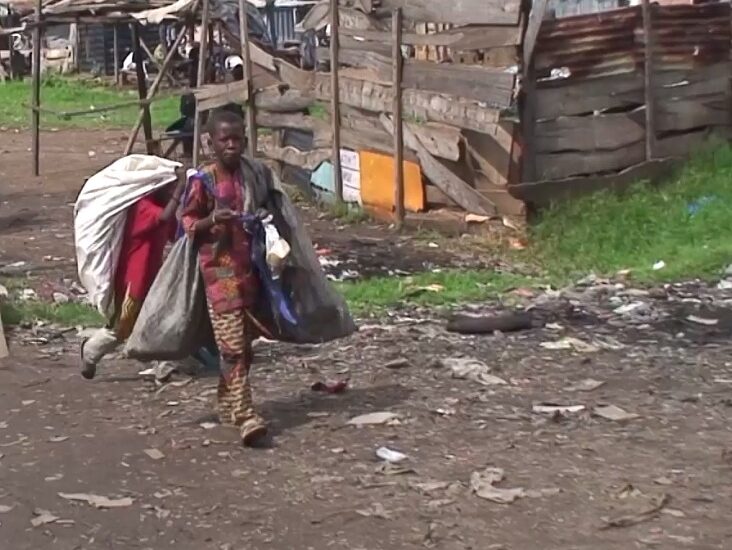Street children often find themselves unseen or forgotten by society’s eyes; yet paradoxically forming some of its most vulnerable members Despite this societal oversight, it is crucial, vitally important that we acknowledge not only their vulnerability but also their remarkable ability that street children possess within themselves resilient character strength, which allows them to navigate their lives amidst adversity and hardship. This article aims to shed light on the vulnerability and resilience of street children, emphatically underscoring the pressing need for empathy, understanding, and comprehensive support systems in order to uplift these marginalized young lives.
Understanding Vulnerability
Street children face a myriad of challenges that compound their vulnerability, often stemming from fractured families marked by abandonment, abuse, or neglect. Factors such as extreme poverty, domestic violence, substance abuse, or the loss of a primary caregiver all exacerbate their unfortunate circumstances.
Without a stable and nurturing environment prompting them to flee their homes, these children are compelled to take refuge on the streets, which exposes them to increased exploitation, violence, and substance misuse. Adding further concern is their limited access not only access including food but also poor sanitation hygiene facilities environments exacerbating risk of physical illnesses and inadequate medical care, mental health implications creates an environment where physical sickness joins hands with mental vulnerabilities. Denied deprived of educational opportunities since they do not have access to formal education within classroom these confines they become hindered in terms their chances of seeking out brighter futures for themselves .
Resilience in Adversity
Despite their challenging circumstances, street children exhibit remarkable resilience. They develop adaptive survival skills and resourcefulness to navigate the streets, displaying remarkable courage and determination. Their resilience is often born out of necessity, driven by the instinct to protect them and find means of sustenance in an unforgiving world.

Many street children form tight-knit communities, providing a sense of belonging and support to one another. Within these networks, they share resources, look out for each other’s well-being, and establish their own set of rules and norms to maintain order. By forging these bonds, they create a support system that helps them cope with the challenges they face daily.
Resilience is also evident in the street children’s ability to maintain hope and retain dreams of a better future. Despite the circumstances they find themselves in, many still harbor aspirations of escaping the streets, obtaining an education, and pursuing meaningful careers. Their indomitable spirit serves as a powerful reminder of the human capacity to endure and strive for a brighter tomorrow.
The Call for Empathy and Support
To address the vulnerability and nurture the resilience of street children, it is imperative that society comes together to provide comprehensive support. Governments, NGOs, and individuals must prioritize the following:
Outreach and Rehabilitation: Establishing outreach programs that actively identify and engage with street children, providing immediate assistance, protection, and rehabilitation. These programs should focus on reuniting children with their families whenever possible and providing them with the necessary support to reintegrate into society.
Basic Needs and Essential Services: Ensuring access to safe shelter, nutritious food, clean water, and healthcare services for street children. These provisions are vital for their physical and mental well-being, offering a foundation upon which they can build resilience.
Education and Skill Development: Providing street children with access to formal and non-formal education programs that enable them to acquire knowledge and skills, empowering them to break free from the cycle of poverty and vulnerability. Vocational training initiatives can equip them with marketable skills for future employment opportunities.
Emotional and Mental Support: Establishing counseling and mental health services tailored to the specific needs of street children. These resources can help them heal from trauma, build resilience, and develop healthy coping mechanisms.
Advocacy and Awareness: Raising public awareness about the realities faced by street children and dispelling misconceptions and stigmas associated with their circumstances. Advocacy efforts should push for policy changes and social reforms that protect the rights and well-being of these children.
The vulnerability of street children is a stark reminder of the injustices that persist in our society. However, their inherent resilience and determination offer hope for change. By extending empathy, support, and comprehensive interventions, we can create an environment that nurtures their resilience, restores their dignity, and provides them with opportunities for a better future. It is our collective responsibility to address the challenges faced by street children and work towards building a society that ensures every child’s right to safety, education, and well-being.







I?¦m not positive the place you are getting your info, however great topic. I needs to spend some time learning more or understanding more. Thank you for wonderful information I used to be searching for this information for my mission.